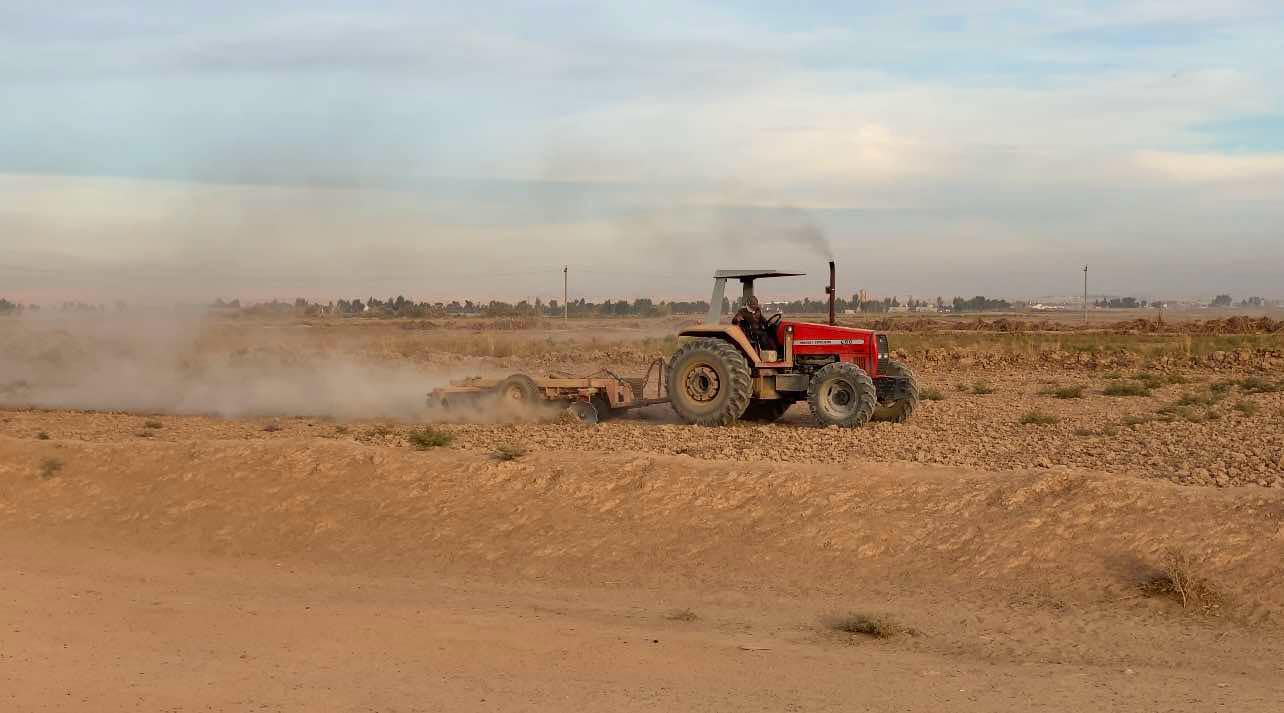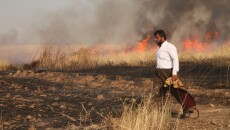After more than 50 years, at least 75,000 Hectares (300,000 donums) of land are scheduled to be returned by a decision of the Iraqi parliament to their original owners in Kirkuk province. Dozens of lawsuits filed against farmers will be cancelled. However, farmers have doubts about the possibility of implementing the decision.
On Tuesday, January 21, 2025, the Iraqi parliament endorsed three controversial laws and legal amendments without any prior agreement or consensus between the Shiites, Sunnis, Kurds and Turkmen, including the approval of a law to return confiscated properties to their owners.
Omed Mohammed, a Kurdish lawmaker, told (KirkukNow) that "the approval of the law to return properties to their owners included in some decisions of the Revolutionary Command Council (dissolved), includes all lands whose ownership was transferred by the Revolutionary Command Council to the Ministries of Finance, Defense, Municipalities and Oil."
"In addition to the Kurds and Turkmen, a section of the Sunni Arabs will benefit from the decision, especially those who refused to join that Ba’ath party during the rule of the Baath regime and as a result their lands were confiscated," he added
In the 1970s and 1980s, the Revolutionary Command Council (dissolved) issued a series of decisions regarding agricultural lands, especially in the disputed territories, which included distributing the lands to the ministries, which in turn redistributed them to farmers under contracts.
According to estimates by lawyers in property dispute cases and farmers themselves, no less than 300,000 dunams of agricultural lands were confiscated from their owners.
"The Kurds and Turkmen had the lion's share in land confiscation," Mohammed said.
The return of seized lands to its owners was one of the most complicated issues in the multi-ethnic, oil-rich Kirkuk province and other disputed territories, pending for 20 years. This has led to several clashes between Kurdish, Arab and Turkmen farmers.
The northern, oil-rich, ethnically mixed province of Kirkuk is home to about 1,77 million Kurds, Turkmen, and Arabs. Located 238 kilometers north of Baghdad, Kirkuk has long been at the center of disputes between the federal government in Baghdad and the Erbil-based Kurdistan Regional Government KRG.
Lands covered by the decision
"The decision does not include the return of lands through which oil pipelines pass, as ownership of lands 100 meters on both sides of the oil pipelines will remain with the Ministry of Oil," lawmaker Mohammed pointed out.
He also explained that the decision also does not include lands on which camps were established, including the K-1 military base and Khalid camp.
The law states that "the decision does not include lands for which the government granted compensation to their owners in exchange for their use... nor does it include lands designated for the public interest."
Sateh Naseh, a representative of the farmers of Topzawa village, expressed his joy with the issuance of the law.
"This was one of our main demands during the past two decades... Issuing the decision is an important step, but the most important thing is its implementation."
Following the issuance, the representative of the Topzawa farmers stressed that he had spoken with the Iraqi Minister of Justice, Khaled Shawani, a Kurd, and informed him that the law does not include the lands of the K-1 military base, Kirkuk airport, and Al-Halwa base.
Regarding the fate of the 5,000 dunams of land seized by the Iraqi army under the pretext that they belong to the Ministry of Defense, Naseh said that the Minister of Justice informed him that these lands, the headquarters of the Joint Operations Command, and the command of the 11th Army Division, which established its headquarters on an area of 600 dunams, will be returned to their owners.
Condemnation and applause
The leaders of the Kurdish parties and the Iraqi Turkmen Front ITF welcomed the decision and described it as a "great victory," but some Arab parties described the approval of the law as "illegal."
The Kurdistan Regions Authority outside the Kurdistan Regional Government stressed in a statement, saying, "We believe that we have achieved a major goal, to which we have devoted our efforts in Erbil and Baghdad for a long time... This step will enhance joint work between the components of Iraq and expand the space of trust between the political parties."
Wasfi Al-Asi, an Arab lawmaker from Kirkuk, in a video clip, expressed his condemnation of the law to return properties to their owners and described the voting process as “illegal,” and said that they will resort to the Federal Court to reconsider the issue of voting on the law, which he believes has been subject to legal violations.
“The court’s results will certainly be positive and in your interest,” Al-Asi said, addressing the Arabs of Kirkuk.
According to the Iraqi constitution, any law or decision issued by the House of Representatives must be signed or rejected by the presidency within 15 days, and then published in the Iraqi “Al-Waqa’i” newspaper within 30 days, before the relevant ministries begin issuing instructions for its implementation.
In recent years, dozens of farmers have been subjected to arrest and trial after lawsuits were filed against them by the Iraqi army due to their use of these lands for agricultural purposes.
Shikar Mardan, a lawyer for the residents of the village of Topzawa in Kirkuk, said that “the Iraqi army filed lawsuits on charges of encroachment on property, because the army considers these lands to be the property of the Ministry of Defense, so all lawsuits will be cancelled in conjunction with the implementation of the law.”
However, he pointed out that it is necessary at that time "to officially notify the court about the issuance of this law through the Real Estate Registration Department in Kirkuk."
"We have been arrested many times based on lawsuits registered by the army and our cases are still in court, we demand that the lawsuits be cancelled from now on," Naseh said.
Regarding the lands whose ownership was transferred to the Ministries of Defense, Municipalities and Oil, the lawyer said that their owners can file lawsuits and demand compensation.
According to the law, the government must investigate how to grant compensation for lands that were converted into residential units.
Amer Mohammed, a Turkmen farmer in the village of Yahyawa, whose lands were confiscated in 1975 and distributed to Arab settlers, said, "Arab farmers say we have official contracts and these lands are ours."
"The issuance of the law has warmed our hearts," he added.






